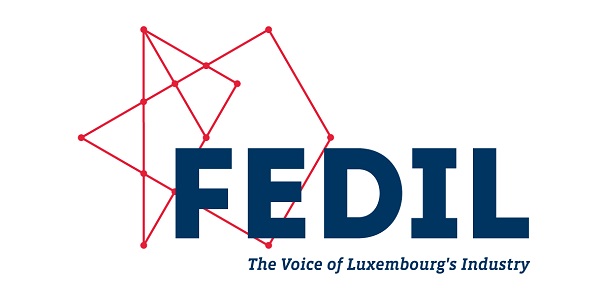
On Tuesday 2 July 2024, FEDIL – The Voice of Luxembourg's Industry confirmed that the board of directors in its recent meeting addressed the European competitive situation in the sectors represented by the federation.
The FEDIL analysis reportedly confirmed the difficulties that several sectors, in particular the manufacturing sector, face in a context where the European Union has fallen “seriously” behind competitively compared to the main competing economic areas.
One month after the European elections and with a view to the formation of the new European Commission, FEDIL launched a call for corrective measures intended to redress the competitive situation and thus improve the economic and social prospects for the Union.
To offer a future perspective to energy-intensive industries, it will be necessary to guarantee the adequacy between energy supply and demand within an internal market logic, by accelerating the deployment of carbon-free production and storage technologies, FEDIL stressed. Thus, for the years to come, the “Green Deal” will have to take advantage of technological progress, but avoid a rush which would only accelerate the movement of deindustrialisation without any positive effect on overall greenhouse gas emissions.
FEDIL considers it essential that the next European Commission puts an end to regulatory difficulties and corrects the errors of recent years. This will involve improving the quality of future regulations, among other things, by making them more consistent with respect for the principles of the internal market and by anticipating problems of feasibility and administrative burden to be avoided when designing the regulation.
Another priority should be to promote a framework conducive to innovation and the modernisation of the European economy, by acting on the levers of research, technology transfer, financing and acceleration of procedures, FEDIL added.
Given the ambition to improve Europe's independence in critical areas while maintaining openness to cooperation and global trade, the EU will need to conclude new trade agreements whose approvals should be decided at the European level alone, with EU trade policy essentially falling within the exclusive competence of the Union, according to FEDIL. This is to guarantee access to raw materials and to promote the localisation of strategic value chains in Europe.
The Enrico Letta report on the future of the single market, submitted to the Council on 18 April, had already proposed a series of improvements, and it was expected that a call for corrective action would be included in the one Mario Draghi would present to the new Commission on European competitiveness. BusinessEurope, representing 20 million small and large businesses and 40 national federations, was showing the way forward by proposing a "New European Competitiveness Deal" to the politicians who would hold the reins for the next five years, FEDIL concluded.








